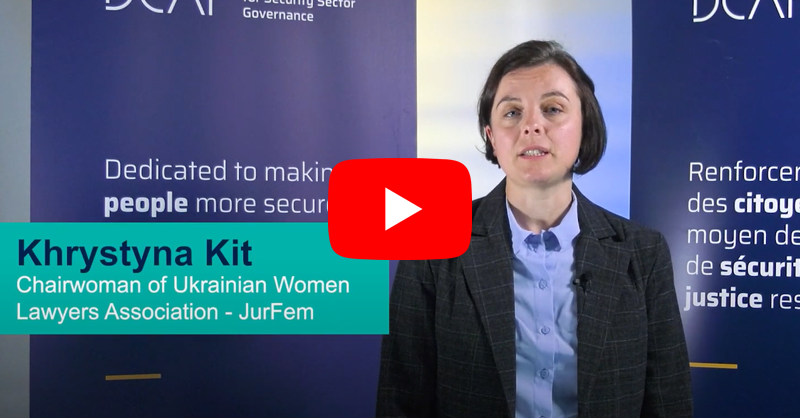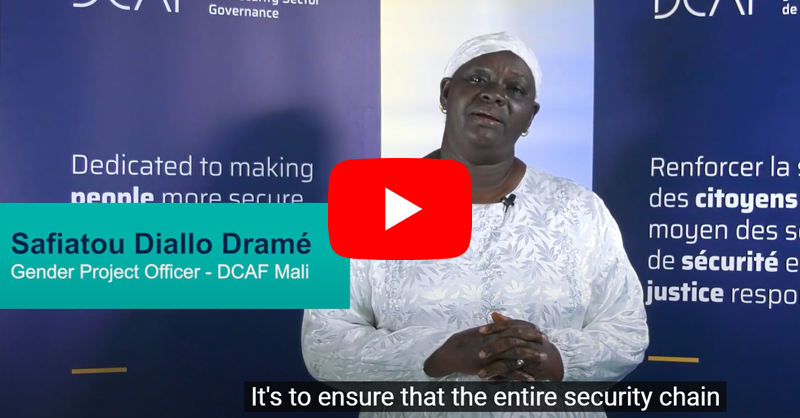SSR and Conflict-Related Sexual Violence: Understanding the impacts of peacetime GBV capacity-building
Authors
Megan Bastick and Marta Ghittoni
Description
This study explores the impact of gender-focused security sector reform on addressing conflict-related sexual violence (CRSV) during armed conflict.
Using interviews, surveys, and documentary analysis, it evaluates internationally supported Gender Based Violence (GBV) and CRSV capacity-building initiatives in Mali and Ukraine from 2017–2022. The findings inform evidence-based recommendations for improving SSR and Women, Peace and Security approaches, offering insights into effective policy and programming.
Many of our staff were unaware of the seriousness of domestic violence, but today there has been a big change. Raising public awareness has also meant that survivors are not stigmatized.
In Mali, SSR capacity-building initiatives by international actors like DCAF and MINUSMA contributed to raising awareness of GBV and CRSV among police and gendarmerie. However, the focus on technical skills over institutional reform, along with limited resources, inadequate laws, and societal stigma, curtailed the long-term impact. The study emphasizes the need for carefully contextualized, locally owned and long-term approaches to security sector reform.
In Ukraine, progress in CRSV response has been notable, particularly through the Office of the Prosecutor General and judicial training centres. International support improved survivor-centred practices and highlighted links between CRSV and GBV. However, gaps in GBV services and barriers to justice persist, with a stronger emphasis on CRSV overshadowing broader GBV efforts.
Both the Mali and Ukraine cases show that GBV capacity-building before conflict does prepare the ground for a better response to CRSV. It can contribute to the institutionalization of GBV training and development of structural measures to address GBV, and to coordination between community organizations, non-governmental organizations and security sector actors.
From a Women, Peace and Security perspective, the study underscores the importance of intersectional, survivor-empowering CRSV responses and continuous documentation of effective practices to combat bias and stigma. It advocates for holistic, gender-responsive security sector reform as a framework for addressing CRSV, emphasizing that institutional transformations are key to long-term success.
This research is part of DCAF’s “Enhancing SSG/R Policy & Practice Initiative” funded by the Netherlands’ Ministry of Foreign Affairs.
The project features case studies from Mali and Ukraine and a main summary report: SSR and Conflict-Related Sexual Violence: Understanding the impacts of peacetime GBV capacity-building.
Watch Khrystina Kit, head of the Ukrainian Women Lawyers Association “JurFem”, shares what the most important takeaways of the report “Understanding how GBV capacity-building in peacetime has an impact during war” are.

Watch this interview with Safiatou Diallo, research author, explaining what the international community and national institutions should be doing differently after reading the report:

 Share on Facebook
Share on Facebook Share on Linkedin
Share on Linkedin Share on Twitter
Share on Twitter